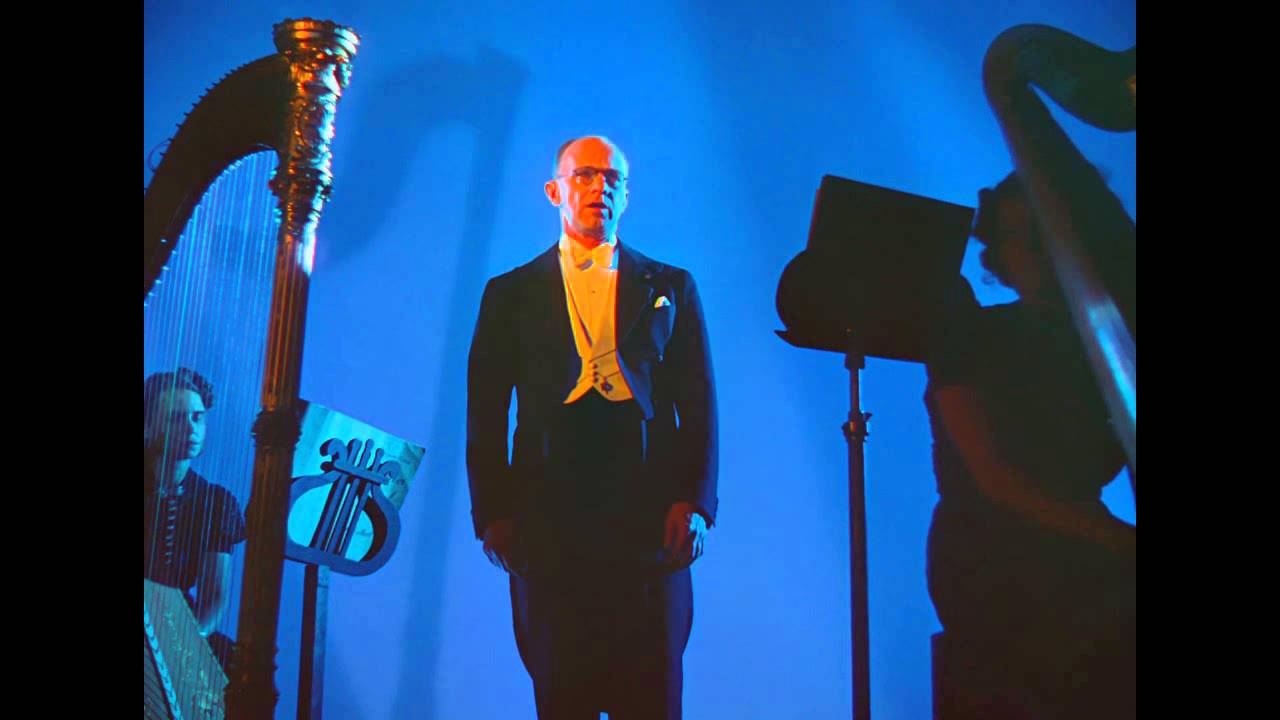Laura Bohannan was preparing to leave to study the rituals of the Tiv people in West Africa when she got into a disagreement with a fellow Oxford professor, who claimed that Americans, not steeped in English culture, naturally misunderstand Hamlet. Bohannan, being an American, took umbrage, and in an attempt to prove that Shakespeare is naturally universal and accessible to anyone, she packed her copy of Hamlet with her to teach to the Tiv.
The result, which she described in her 1966 essay “Shakespeare in the Bush”, was, by her original standards, a failure. The Tiv refused to accept the supernatural aspects, and were baffled by the way authority worked: Horatio, they decided, should have gone to the elders instead of a young man like Hamlet.
 Re-watching Fantasia for the first time since childhood, I thought a lot about Bohannan’s piece. Deems Taylor, the narrator, presents Fantasia to the viewer as educational in his opening comments, but is the point here merely to “educate”? After all, to educate is to pass on a body of knowledge, something that could be done much more effectively by a series of lectures and full performances than by animated short films.
Re-watching Fantasia for the first time since childhood, I thought a lot about Bohannan’s piece. Deems Taylor, the narrator, presents Fantasia to the viewer as educational in his opening comments, but is the point here merely to “educate”? After all, to educate is to pass on a body of knowledge, something that could be done much more effectively by a series of lectures and full performances than by animated short films.
No, the goal of Fantasia is to excite the viewer, to grow within them a passion for classical music. But the question still stands: why? As someone who has loved classical music their whole life — someone who spent every other Saturday the last couple years of high school watching the Metropolitan Opera broadcast to their movie theater — it doesn’t matter to me one bit whether anyone else on Earth is interested in it.
I would suggest that the goal is not merely to spread the love of classical music from a disinterested, philanthropic perspective, but something closer to what Bohannan was attempting with Hamlet. Bohannan wanted to prove that Hamlet was universal, so she required something closer to “primal” humanity. If the Tiv can be taught to love Hamlet, the logic went, then anyone could.
The average viewer of Fantasia fills the role of the Tiv as something closer to “brute” humanity. If the average moviegoer can learn to like classical music, the logic goes, then anyone can. But what we get in the film is not quite classical music.
To start with, the entire mode of presentation focuses the attention to the motive. All motion corresponds to the motive, that thing you can leave the theater whistling. We lose almost all harmonic content and a ton of connective tissue, and are left with little more than a handful of scattered melodies.
I understand the appeal of using melodies this way: harmonic content is not always the easiest thing to learn to listen for. Moreover, focusing on motives makes it easier to prove the audience has been “educated”: they now can recognize the first movement Beethoven’s Sixth when they hear it, at least.
The animations themselves try to make the works in some way primal, too. Other than the opening Toccata and Fugue, every piece selected is program music — that is, it tells a story of its own. But other than Ponchielli’s Dance of the Hours, all of these pieces have been stripped of their original narrative and placed into primitive, natural settings: the centaurs and fairies of Beethoven’s Sixth, the fish and flowers of the Nutcracker Suite, the creation of the Earth in Rite of Spring. Even the famous Sorcerer’s Apprentice, placed in an ambiguously medieval setting, is introduced as a “very, very old story, going back millennia”.
There almost seems to be a divide between education and entertainment at play here. Education is inherently synchronic — that is, the goal is a body of knowledge that is solid and which pays no attention to time. It doesn’t matter in what order or how you learned something, whether you heard the Sixth before the Rite or the other way around.
 But entertainment is diachronic: the order of things does matter. It does matter whether we learn about modernism after Romanticism, or the other way around. As such Fantasia is stuck between two positions. We cultured elites must entertain the average moviegoer to get them to learn about classical music — we must introduce it to them on a reduced, primal level.
But entertainment is diachronic: the order of things does matter. It does matter whether we learn about modernism after Romanticism, or the other way around. As such Fantasia is stuck between two positions. We cultured elites must entertain the average moviegoer to get them to learn about classical music — we must introduce it to them on a reduced, primal level.
Once we have entranced them with the base, universally human message — the ancient world of magic, the simplest melodic fragments — they can climb the ladder to true knowledge and kick simple diachronic entertainment aside.
Fantasia, then, succeeds only to the extent that it fails. It succeeds as a wonderful work of animation that can seduce people into loving its music; it fails in that it is something we can return to and stay with, that we do not need to “develop past,” that works in ways the creators may not have wholly anticipated.
Pierre Bayard, in his fantastic book How to Talk About Books You Haven’t Read, points out that Bohannan’s Tiv audience managed to make a number of points about Hamlet that would in following decades become major points in academic analysis (in particular, that the ghost could be lying, and that Hamlet may not be correct about what is going on). There are generations of people for whom The Rite of Spring simply is about dinosaurs, about the creation of the world; perhaps someday those who love classical music “properly” will catch up with them.

